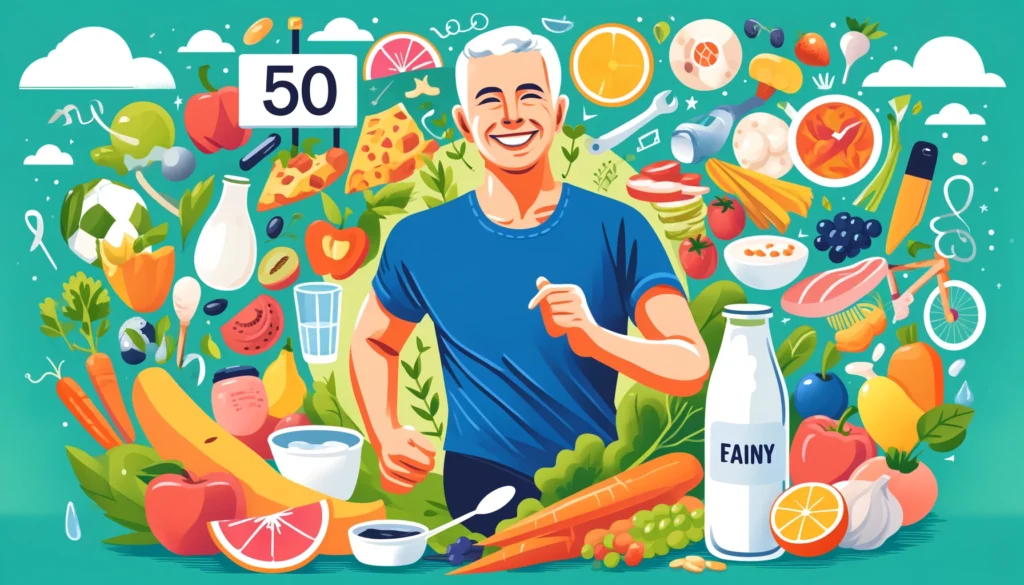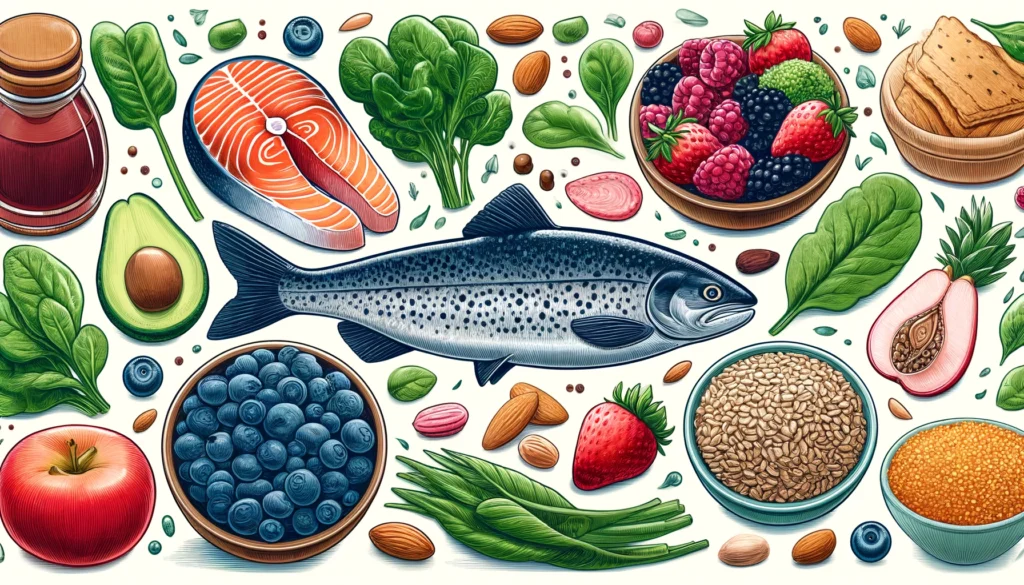Date: 11-12-2024
As women reach their 50s, dietary needs can shift dramatically. Hormonal changes, metabolic slowdowns, and increased risk of certain health conditions make nutrition more important than ever. Here, we explore the best foods to support health, vitality, and well-being in this stage of life.
Understanding Nutritional Needs in Your 50s
In your 50s, your body undergoes significant changes. Menopause, reduced bone density, changes in muscle mass, and an increased risk of chronic diseases can influence your dietary requirements. Let’s break down the key nutrients that women in their 50s need and why they matter.
- Calcium and Vitamin D: To support bone health and prevent osteoporosis.
- Protein: To maintain muscle mass and support metabolism.
- Fiber: For digestive health and to help manage weight.
- Antioxidants: To combat aging and support immune health.
- Omega-3 Fatty Acids: To support heart and brain health.
Best Foods to Include in Your Diet
1. Fatty Fish
Fatty fish like salmon, mackerel, and sardines are rich in omega-3 fatty acids, which can reduce inflammation, improve heart health, and support cognitive function. Aim to eat fatty fish at least twice a week for optimal benefits.
2. Leafy Greens
Leafy greens, such as spinach, kale, and arugula, are packed with essential vitamins, minerals, and antioxidants. They are especially high in calcium, vitamin K, and magnesium, which are crucial for bone health. Include a serving of leafy greens daily to help maintain strong bones and reduce the risk of fractures.
3. Beans and Legumes
Beans and legumes, such as lentils, chickpeas, and black beans, are excellent sources of fiber, protein, and essential minerals. These foods help regulate blood sugar levels, support digestive health, and keep you feeling full longer. Include beans in your diet several times a week.
4. Berries
Berries like blueberries, strawberries, and raspberries are antioxidant powerhouses. They help protect against cellular damage, support brain health, and can even improve skin elasticity. Aim to include a handful of berries daily as a snack or added to breakfast foods.
5. Whole Grains
Whole grains, such as quinoa, brown rice, and oats, provide fiber, vitamins, and minerals. They help stabilize blood sugar, promote digestion, and keep you energized throughout the day. Aim to choose whole grains over refined grains to maximize these benefits.
6. Nuts and Seeds
Nuts and seeds like almonds, walnuts, chia, and flaxseeds are rich in healthy fats, protein, and fiber. They help reduce cholesterol levels, improve heart health, and provide lasting energy. Try incorporating a small handful of nuts or a sprinkle of seeds into your meals daily.
7. Dairy or Fortified Alternatives
For women in their 50s, dairy products or fortified alternatives can provide essential calcium and vitamin D for bone health. Options like yogurt, kefir, or fortified plant-based milk can support bone density. Choose low-fat or full-fat options depending on your dietary needs and preferences.
8. Cruciferous Vegetables
Cruciferous vegetables such as broccoli, cauliflower, and Brussels sprouts contain compounds that may support hormonal balance. They are also high in fiber and essential nutrients. Aim to include cruciferous vegetables a few times a week.
9. Citrus Fruits
Citrus fruits like oranges, grapefruits, and lemons are rich in vitamin C, which supports immune health, skin elasticity, and iron absorption. A serving of citrus daily can help boost your intake of this essential nutrient.
10. Lean Protein Sources
Lean proteins, including chicken, turkey, and plant-based proteins like tofu, help maintain muscle mass, especially as metabolism slows. Include a source of lean protein with each meal to stay energized and promote muscle health.
How to Build a Balanced Meal Plan
Creating a balanced meal plan in your 50s involves focusing on nutrient-dense foods and balanced portions. Aim for a plate that includes:
- 1/2 vegetables and fruits
- 1/4 lean proteins
- 1/4 whole grains or starchy vegetables
- A small amount of healthy fats
Additional Tips for Healthy Eating in Your 50s
- Stay Hydrated: Water is crucial for skin health, digestion, and energy levels.
- Limit Processed Foods: Processed foods are often high in sugar, salt, and unhealthy fats.
- Moderate Caffeine and Alcohol: These can affect bone health and sleep quality.
Conclusion
Eating well in your 50s can greatly impact your health and quality of life. By incorporating nutrient-dense foods, focusing on bone and heart health, and staying active, you can support vitality and well-being in this stage of life. Remember, it’s always best to consult with a healthcare provider or a registered dietitian when making significant changes to your diet.


